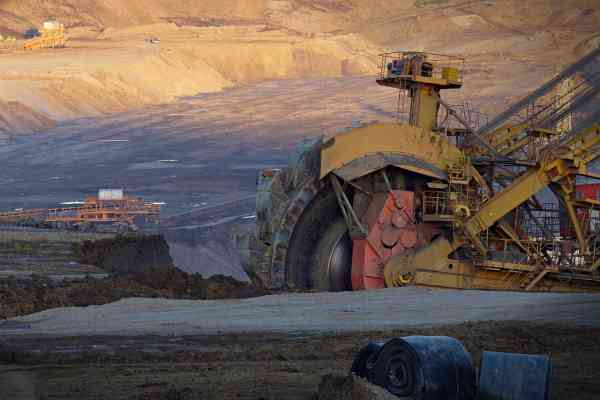March 28th, 2023 | 07:36 CEST
E-cars - Out of a dream! BYD, BMW, First Phosphate
While German politicians are still discussing the end of the internal combustion engine, major car companies have long since made up their minds. The future is electric. But the mobility revolution is far from being a done deal! We explain where there are still pitfalls and why a small company from Canada could soon be sitting at the big levers to make the dream of clean e-mobility come true for everyone.
time to read: 3 minutes
|
Author:
Nico Popp
ISIN:
BYD CO. LTD H YC 1 | CNE100000296 , BAY.MOTOREN WERKE AG ST | DE0005190003 , FIRST PHOSPHATE CORP | CA33611D1033
Table of contents:

"[...] Large tailings piles, such as those created in phosphate production from sedimentary rock, will not exist in our process. [...]" John Passalacqua, CEO and Director, First Phosphate Corp.
Author
Nico Popp
At home in Southern Germany, the passionate stock exchange expert has been accompanying the capital markets for about twenty years. With a soft spot for smaller companies, he is constantly on the lookout for exciting investment stories.
Tag cloud
Shares cloud
BMW: China as a market of hope
The dispute between the Federal Republic of Germany and the EU Commission over the end of the internal combustion engine and exemptions for engines fueled with so-called e-fuels, i.e. synthetic fuels that can theoretically be climate-neutral, dominated discussions last week. Yet it has long been clear among car manufacturers like BMW that the future is electric. Porsche seems to be the only company with any interest in launching e-fuel models in the future.
BMW and Co. have long been using e-cars. For companies like BMW, this decision also depends to a certain extent on China. China is considered the last growth market for German industrial companies. Years ago, however, the central government in Beijing was already betting on e-mobility there. In order to stay on the ball in the race for market share in China, German automakers followed suit. In the meantime, the popularity of e-cars is also growing in Germany - but doubts about their sustainability remain, especially when measured against the continued use of a combustion engine with modern emissions standards and a fuel-efficient engine.
BYD can draw from a wealth of resources: Sustainability is the problem
It also remains to be seen whether Western industrial companies have the raw materials they need to keep up with competitors such as BYD. Chinese competitors currently have better access to critical metals for Greentech solutions. But China's supremacy is not unchallenged. Especially from a sustainable point of view, more and more critical consumers are calling for battery metals to be sourced as cleanly as possible. The Canadian company First Phosphate is now preparing to cover a large part of the value chain for lithium iron phosphate batteries at its site in Québec, Canada. To this end, First Phosphate uses high-grade deposits and state-of-the-art processing methods.
First Phosphate: Aiming to make e-car supply chains ESG compliant
"First Phosphate plans to mine phosphate from anorthosites. Igneous rock phosphate deposits have the advantage of not containing radioactive elements, so the process after phosphate extraction is straightforward and does not lead to contamination. In our process, there will be no large tailings piles, such as those created during phosphate extraction from sedimentary rock. Consequently, we will be able to operate a high quality and sustainable phosphate mining practice and thus have all the ESG prerequisites to attract the automotive industry as a customer," explains John Passalacqua, CEO and Director at First Phosphate.
Once mined, the Company plans to sort phosphate rock and work with partners to produce phosphoric acid and ultimately, with the help of lithium, obtain cathode material for lithium iron phosphate batteries that could be shipped via a nearby deepwater port to battery factories in Canada, the US, Mexico and other countries. In the coming months, First Phosphate plans to start pilot production. "The environment is extremely favorable for innovative companies like ours that will make advanced battery technology ESG compliant from open pit mining onward and make further value creation sustainable," said Passalacqua. First Phosphate's stock went public in Canada just a few weeks ago. Despite the turbulent environment, the stock held remarkably steady. Since phosphate is primarily produced for agriculture, global supply in this area is declining, and production is often not ESG-compliant, First Phosphate may have found a promising niche with its approach. More background on First Phosphate can be found in a recent interview with CEO John Passalacqua.
Even though the future of e-cars seems to be set, whether e-cars of the future are truly clean and sustainable could depend on projects like First Phosphate. While BYD will continue to use raw materials from China, companies like BMW need to differentiate themselves from the Chinese and become more independent. Since sustainably recoverable phosphate is scarce in Western industrialized countries, much boils down to the Québec site. Companies like First Phosphate could become a crucial piece of the mobility revolution puzzle.
Conflict of interest
Pursuant to §85 of the German Securities Trading Act (WpHG), we point out that Apaton Finance GmbH as well as partners, authors or employees of Apaton Finance GmbH (hereinafter referred to as "Relevant Persons") may hold shares or other financial instruments of the aforementioned companies in the future or may bet on rising or falling prices and thus a conflict of interest may arise in the future. The Relevant Persons reserve the right to buy or sell shares or other financial instruments of the Company at any time (hereinafter each a "Transaction"). Transactions may, under certain circumstances, influence the respective price of the shares or other financial instruments of the Company.
In addition, Apaton Finance GmbH is active in the context of the preparation and publication of the reporting in paid contractual relationships.
For this reason, there is a concrete conflict of interest.
The above information on existing conflicts of interest applies to all types and forms of publication used by Apaton Finance GmbH for publications on companies.
Risk notice
Apaton Finance GmbH offers editors, agencies and companies the opportunity to publish commentaries, interviews, summaries, news and the like on news.financial. These contents are exclusively for the information of the readers and do not represent any call to action or recommendations, neither explicitly nor implicitly they are to be understood as an assurance of possible price developments. The contents do not replace individual expert investment advice and do not constitute an offer to sell the discussed share(s) or other financial instruments, nor an invitation to buy or sell such.
The content is expressly not a financial analysis, but a journalistic or advertising text. Readers or users who make investment decisions or carry out transactions on the basis of the information provided here do so entirely at their own risk. No contractual relationship is established between Apaton Finance GmbH and its readers or the users of its offers, as our information only refers to the company and not to the investment decision of the reader or user.
The acquisition of financial instruments involves high risks, which can lead to the total loss of the invested capital. The information published by Apaton Finance GmbH and its authors is based on careful research. Nevertheless, no liability is assumed for financial losses or a content-related guarantee for the topicality, correctness, appropriateness and completeness of the content provided here. Please also note our Terms of use.




